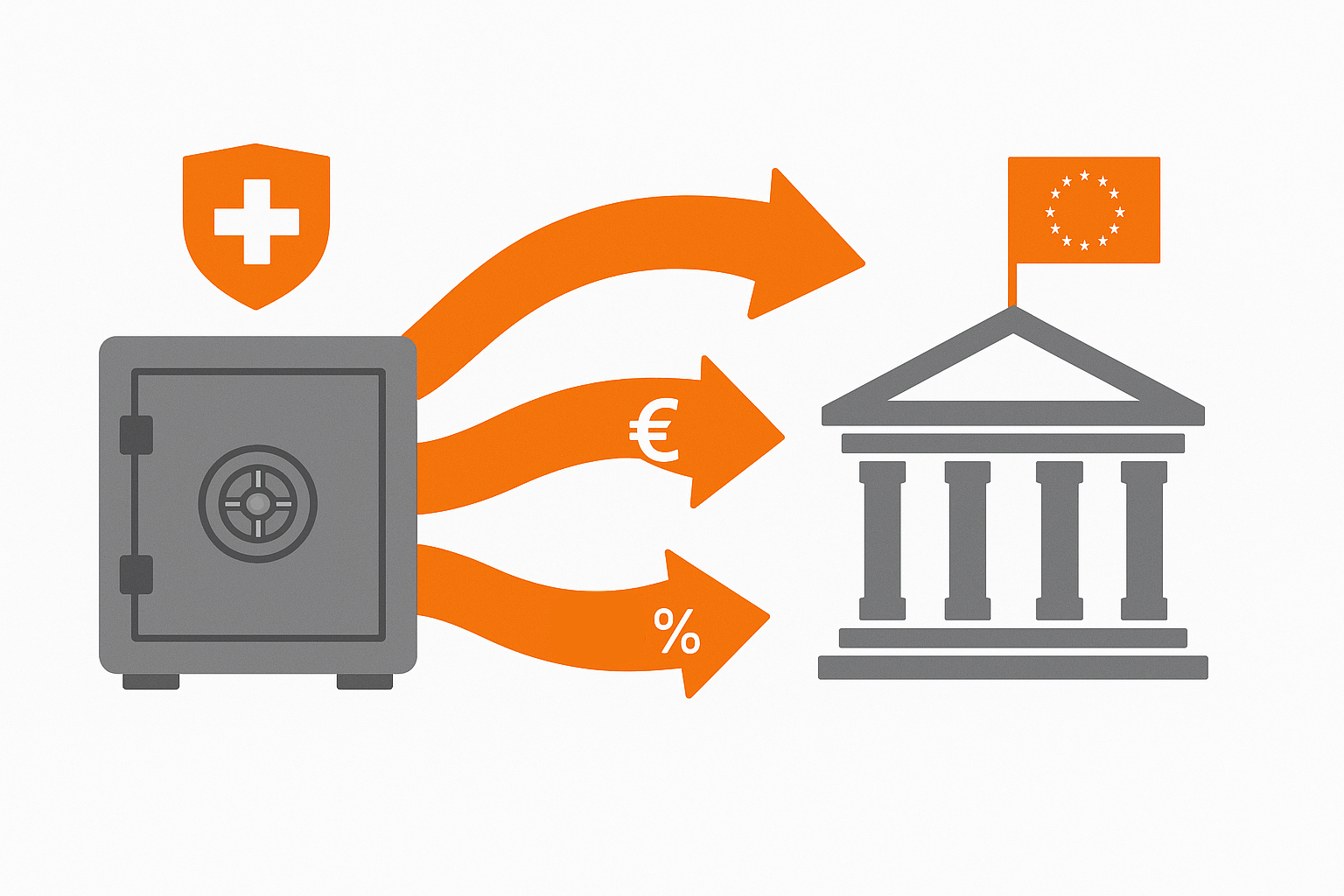08/09/2025
Brussels is the new Zurich
Business advisory
A Dutch tax change and US policy shifts have accidentally created Europe’s biggest advisory opportunity in decades
I was halfway through my (small) complementary box of Belgian chocolates (thank you Sofitel!) at 11 PM in Brussels when the phone rang.
It was one of our Dutch partners, let’s call him Coen, and he sounded genuinely excited. If this was a member from Latin America, there would be no surprise… but an excited Dutch tax advisor got my attention.
“You need to hear this,” he said, “it’s amazing! Dutch Box 3 changes are reshaping the European wealth advisory landscape.”
I put down my chocolates and listened. A mid-sized firm was reporting that traditional Swiss structures were losing their appeal, EU alternatives were suddenly in massive demand, and their business advisory division was growing faster than they could hire qualified staff and it wasn’t just happening in the Netherlands.
The next morning, I walked through the European Quarter, past the glass towers where Eurocrats were drafting regulations that most accountants wouldn’t read for another six months (if at all). While everyone was still thinking of Brussels as the place where tax rules go to become complicated, it was quietly becoming the place where the world’s wealth was going to be managed.
Three weeks later, I was speaking to a Swiss wealth manager who’d spent fifteen years perfecting the art of discretion in Zurich’s private banking circles. She was now consulting for a Frankfurt-based advisory firm, helping them structure EU alternatives for clients who were abandoning Swiss arrangements faster than she’d ever seen.
“It started with the Americans,” she explained, “The new U.S. policies made EU structures more attractive overnight. Then the Dutch Box 3 changes accelerated everything. But the real catalyst was something nobody expected—the EU’s own regulatory certainty became its selling point.”
Elena pulled out her phone and showed me a chart showing how much EU cross-border advisory revenue had grown in the last eighteen months. Steep!! And not compliance revenue. Advisory revenue. The high-margin, relationship-building, strategic-planning kind that transforms firms from order-takers into trusted advisors.
“The Swiss banks are panicking,” she continued. “They spent decades building a mystique around secrecy and exclusivity. Now transparency and accessibility are the competitive advantages. The EU has accidentally created the opposite of what Switzerland represented, and it turns out that’s exactly what international business wanted.”
I thought about our network’s firms across Europe, most of whom still position themselves as compliance experts rather than strategic advisors. Meanwhile, the regulatory shifts were creating opportunities they hadn’t even recognized yet.
The revelation hit me during my train ride back to Paris. We weren’t witnessing a simple geographic shift in wealth management—we were watching the birth of an entirely new advisory model. The EU’s 28th regime, coming in Q1 2026, could accelerate this trend beyond anything we’ve seen before.
The firms capitalizing on this aren’t necessarily the biggest or most established. They were the ones who understood that regulatory disruption creates advisory opportunities, not just compliance headaches. They were the ones who saw that when clients’ worlds change, they need strategic guidance, not just technical execution.
The article that had excited Coen wasn’t just describing a successful firm—it was describing the future of professional services in Europe. A future where Brussels might genuinely challenge Zurich as the continent’s financial advisory center, where regulatory certainty becomes more valuable than traditional secrecy, and where the ability to navigate EU frameworks becomes the most sought-after expertise in international business.
I finished writing this story at 2 AM, looking out at the Paris skyline and thinking about all the advisory firms who are still waiting for the “right moment” to transform their practices.
The moment is now. The question isn’t whether the EU will become the new Switzerland—it’s whether your firm will be ready to help clients navigate that transformation because in six months, when every wealth management publication is writing about this trend, it’ll be too late to position yourself as the advisor who saw it coming.
Follow TGS CEO, Andrew on LinkedIn.
This thought experiment is also going to be part of our November conference program.
There is still time to sign up.



